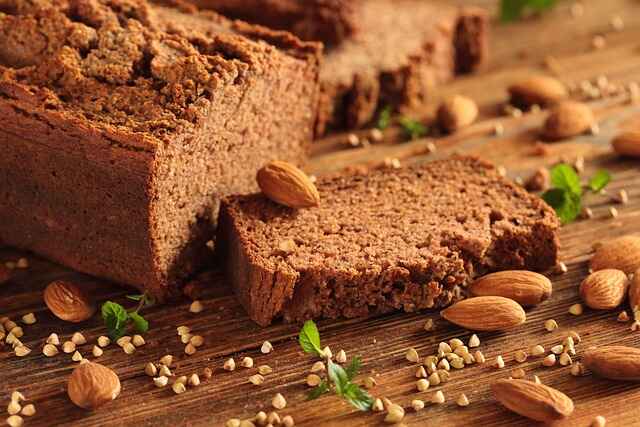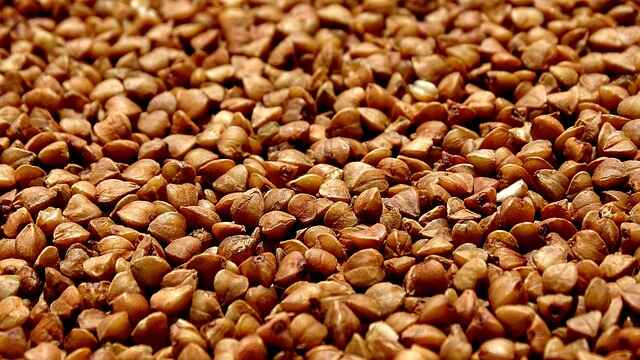Buckwheat, also known as kuttu or kutti in Hindi, is a nutritious and versatile pseudocereal that has been gaining popularity in recent years. Despite its name, buckwheat is not related to wheat and is actually a gluten-free seed that is commonly used in a variety of cuisines around the world. In this article, we will explore the many health benefits of buckwheat and why you should consider incorporating it into your diet.
Also, Read All about ProLon Diet: A Detailed Guide on ProLon Diet for Beginners!
Nutrition Profile:
The Nutrients Present in Buckwheat
Let’s have a look at the nutrition profile per 100g of Buckwheat as provided by the U.S. Department of Agriculture (Source):
- 1. Energy 343 kcal
- 2. Protein 13.2 g
- 3. Total lipid (fat) 3.4 g
- 4. Ash 2.1 g
- 5. Carbohydrate 71.5 g
- 6. Fiber, total dietary 10 g
- 7. Calcium, Ca 18 mg
- 8. Iron, Fe 2.2 mg
- 9. Phosphorus, P 347 mg
- 10. Zinc, Zn 2.4 mg
In India, buckwheat is known by different names in different languages. In addition to kuttu or kutti in Hindi, it is also called paparazzi in Tamil, kokum in Malayalam, and kuttu in Bengali. Buckwheat is often used to make flour for pancakes, noodles, and other baked goods, and it can also be used as a substitute for rice or other grains in savory dishes.
Now let’s take a look at six individual health benefits of Buckwheat:
RICH IN NUTRIENTS
Buckwheat is a nutrient-dense food that is rich in a variety of vitamins and minerals. In particular, it is an excellent source of manganese, copper, magnesium, and phosphorus, as well as B vitamins like thiamin and niacin. Manganese, for example, is important for bone health, metabolism, and wound healing, while copper plays a role in the production of red blood cells and the maintenance of healthy connective tissue. In addition, buckwheat is a good source of plant-based protein, containing all nine essential amino acids. This makes it an excellent option for vegetarians and vegans who may struggle to get enough protein in their diets. (Source)
GLUTEN-FREE
Buckwheat is naturally gluten-free, which makes it an excellent option for people who have celiac disease or gluten intolerance. This can lead to a range of symptoms, including bloating, diarrhea, fatigue, and anemia. In addition, many people who do not have celiac disease may also be sensitive to gluten, experiencing symptoms such as brain fog, headaches, and joint pain. For these individuals, switching to a gluten-free diet can lead to a significant improvement in their overall health and well-being.

RICH IN ANTIOXIDANTS
Buckwheat is also a rich source of antioxidants, which are compounds that help to protect the body against damage from free radicals. Free radicals are unstable molecules that can cause oxidative stress, leading to inflammation and a range of chronic diseases. Some of the specific antioxidants found in buckwheat include rutin, quercetin, and catechin. These compounds have been shown to have a range of health benefits, including reducing inflammation, improving blood sugar control, and promoting heart health. (Source)
IMPROVES DIGESTIVE HEALTH
Buckwheat is rich in dietary fiber, which is essential for maintaining good digestive health. Fiber helps to regulate bowel movements, prevent constipation, and improve overall gut health by promoting the growth of beneficial gut bacteria. In particular, the insoluble fiber found in buckwheat helps to add bulk to stools, making them easier to pass and reducing the risk of constipation.
Meanwhile, the soluble fiber found in buckwheat helps to slow down the absorption of carbohydrates, which can help to regulate blood sugar levels and reduce the risk of type 2 diabetes. Furthermore, buckwheat contains resistant starch, which is a type of fiber that resists digestion in the small intestine and passes through to the large intestine. Here, it is fermented by gut bacteria to produce short-chain fatty acids, which have been shown to have a range of health benefits, including reducing inflammation and promoting gut health.
SUPPORTS HEART HEALTH
Buckwheat is an excellent source of nutrients that are important for heart health, including fiber, magnesium, and potassium. These nutrients work together to promote healthy blood pressure, regulate heart rhythm, and improve overall cardiovascular function.
In addition, buckwheat contains a flavonoid called rutin, which has been shown to have a range of cardiovascular benefits. Rutin helps to reduce inflammation, prevent the formation of blood clots, and improve blood flow, all of which can help to reduce the risk of heart disease. (Source)
MANAGE DIABETES
Buckwheat has a low glycemic index, which means that it causes a slower rise in blood sugar levels compared to high-glycemic-index foods like white bread or sugary snacks. This makes it an excellent choice for people with diabetes or those who are at risk of developing the disease. In addition, buckwheat is high in fiber, which can help to slow down the absorption of carbohydrates and regulate blood sugar levels. The resistant starch found in buckwheat may also have a beneficial effect on blood sugar, as it has been shown to improve insulin sensitivity and reduce postprandial glucose levels.
Also Read: What are the Common Health Problems Caused by High Uric Acid Levels
In conclusion, buckwheat is a nutrient-dense food that offers a range of health benefits. It is rich in fiber, protein, vitamins, and minerals, and has been shown to improve digestive health, support heart health, manage diabetes, and more.
Also, Read All about Climatarian Diet: A Detailed Guide on Climatarian Diet for Beginners!





